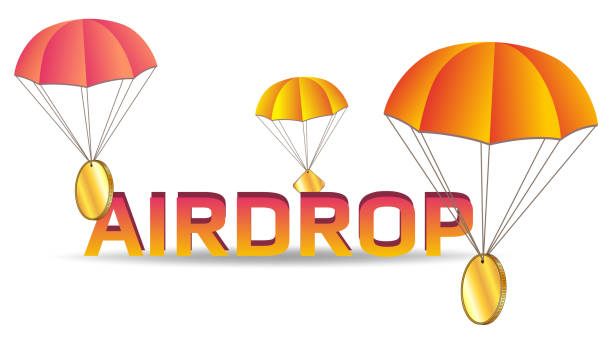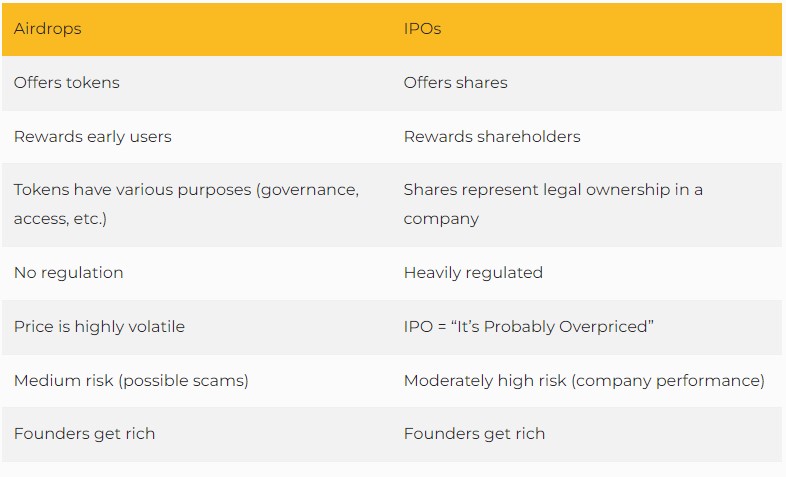Airdrops have become a popular way for new crypto projects to attract users and build their communities. These free token distributions are like getting “shares” in a new company, offering potential rewards for early adopters. However, airdrops come with a double-edged sword. While they can be a great way to get in on the ground floor of promising projects, they also attract participants solely interested in the free tokens, not the project itself. This article explores the world of crypto airdrops, weighing the potential benefits and drawbacks for both tech-savvy crypto enthusiasts and more conservative investors.

Imagine a new social media app offering free shares to early users. Everyone would jump in, right? Now, picture countless similar apps doing the same. This “free share” craze is what airdrops are to the crypto world. Crypto projects give away free tokens to attract users, but are they truly interested in the project or just the freebies? This raises concerns for the project’s future and the effort users put in.
Airdrops: A Crypto Workaround (with a Twist)
Crypto projects use “airdrops” to reward early users with free tokens, similar to how companies might offer shares in an IPO. This builds excitement and attracts new users, who receive tokens upon launch and can trade them on decentralized exchanges. However, unlike traditional share offerings, airdrops lack SEC oversight, raising concerns about founder compensation and project sustainability.
Airdrops: A Double-Edged Sword for Crypto Companies
Airdrops, crypto’s answer to IPO “free shares,” attract new users with the promise of future rewards. While they boost initial user numbers and potentially token prices, the quality of these users is questionable. Many are “airdrop hunters” interested only in the free tokens, not the project itself. This can lead to a drop in user engagement after the tokens launch. For companies, airdrops act like a paid acquisition strategy, but the cost is a dilution of their own token value. While effective for initial traction, airdrops alone aren’t a sustainable growth strategy. The key lies in creating a valuable product that keeps users engaged beyond the free token grab.
Airdrops vs. IPOs: Apples and Oranges?
Airdrops reward with tokens, while IPOs offer actual ownership through shares. This means airdrop participants have different motivations than shareholders who invest their money, potentially leading to lower-quality users for the project. While IPOs offer better alignment and are likely better for the ecosystem, their high cost makes them less accessible for many crypto companies. Finding a legal and affordable blockchain IPO solution could bridge the gap between these two models.
Are Airdrops Legal?
Airdrops, crypto’s answer to free shares, bypass traditional IPOs and their regulations. While convenient, this lack of oversight leaves token prices vulnerable if the SEC deems them illegal offerings. For investors, airdrop “farming” is generally safe but carries risks like scams and hacks. While educational, it’s likely not a lucrative full-time pursuit. Ultimately, clearer regulations would pave the way for legal and transparent crypto fundraising, making airdrops obsolete.
Learn from market wizards: Books to take your trading to the next level.


 Hot Features
Hot Features












